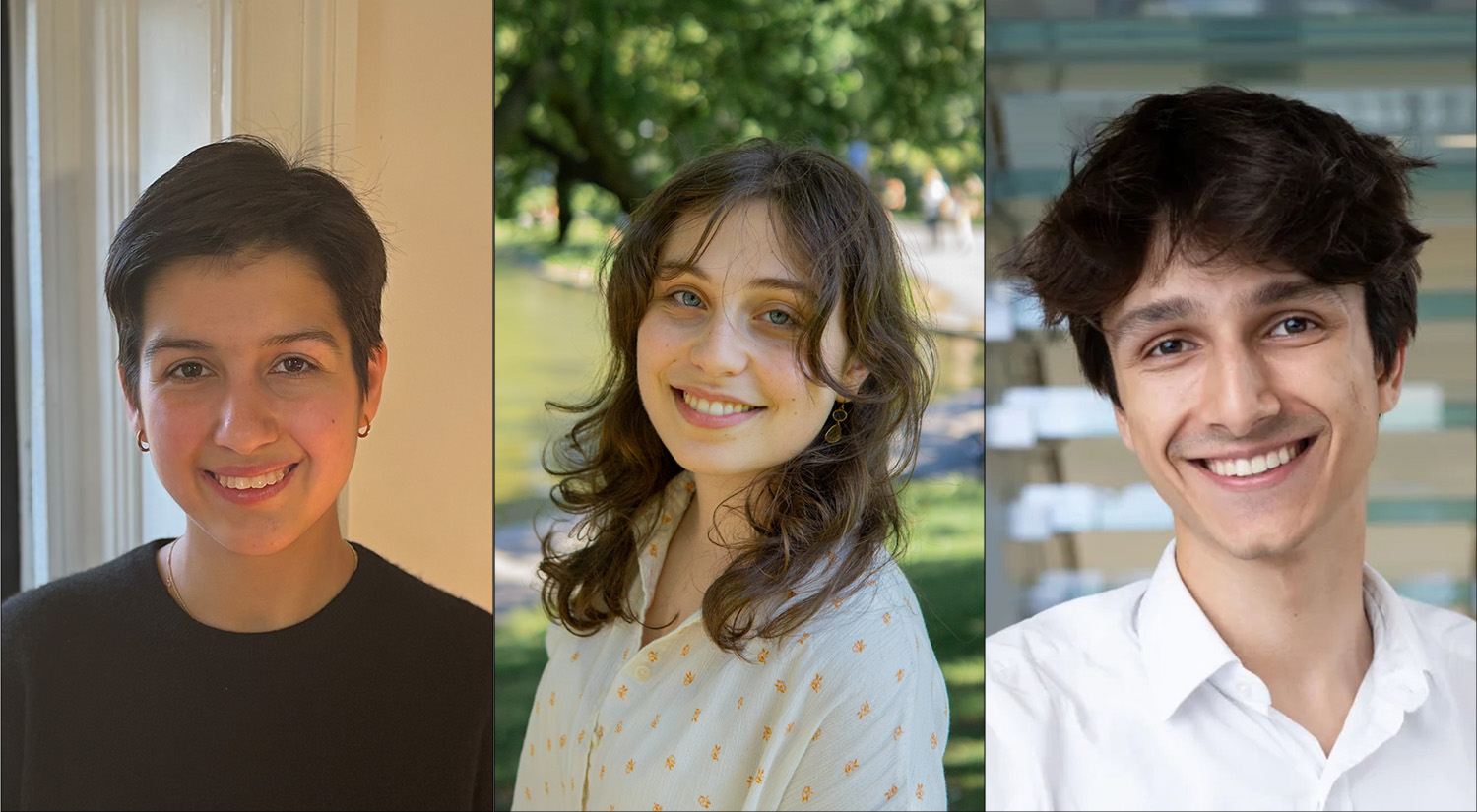
News
Summers Will Not Finish Semester of Teaching as Harvard Investigates Epstein Ties

News
Harvard College Students Report Favoring Divestment from Israel in HUA Survey

News
‘He Should Resign’: Harvard Undergrads Take Hard Line Against Summers Over Epstein Scandal

News
Harvard To Launch New Investigation Into Epstein’s Ties to Summers, Other University Affiliates

News
Harvard Students To Vote on Divestment From Israel in Inaugural HUA Election Survey
Three Harvard Students Named American Rhodes Scholars, Bringing Total to Eight

Updated November 17, 2025, at 10:59 a.m.
The Rhodes Trust named three American Harvard students winners of the prestigious scholarship Saturday, bringing the total number of all-time Harvard U.S. Rhodes scholars to 402.
This is the lowest number of American Harvard winners in recent memory — the College had five U.S. recipients in 2024, nine in 2023, six in 2022, four in 2021, and six in 2020.
The American winners, Anil S. Cacodcar ’26, Emma L.B. Finn ’26, and Yael S. Goldstein ’26, will join five international Harvard student awardees in completing at least two years of postgraduate study at Oxford University. Totaling eight Rhodes winners for the class of 2026, the international scholars include Will J. Flintoft ’26 for Australia, Fajr Khan ’26 for Pakistan, Sazi T. Bongwe ’26 for South Africa, Je Qin Chooi ’26 for Malaysia, and Helen He ’26 for China.
Harvard, Yale, MIT, and the U.S. Military Academy tied for the most U.S. students selected this year, each school boasting three of the 32 American scholars.
“I was in a state of complete and utter shock,” Goldstein, a former Crimson multimedia editor, said of her reaction to receiving the fellowship.
“The first thing I thought was, ‘I need to call my mom right now,’” she said. “I don’t know how many comprehensible words came out. It was sort of just a little bit of screaming, a little bit of tears.”
Upon learning the news, Cacodcar, who comped The Crimson’s Editorial board in spring 2023, said he felt “blessed.”
“I wish I could put that feeling into a bottle,” he said. “I don’t think there’s any other feeling I’ve had like it. I don’t know how to describe it.”
His immediate reaction was to call his little brother, Arun, a freshman at Tulane. “He was over the moon, and he congratulated me on no longer being unemployed.”
Finn, a double concentrator in Mathematics and Classics in Currier House, said that even before the initial shock began to fade, she started writing thank-you notes to her friends, family, professors, and mentors.
“It’s very much not just my accomplishment,” she said.
Finn has worked as an undergraduate to facilitate campus discussions at the intersection of neuroscience and artificial intelligence. At Oxford, Finn intends to pursue an M.Sc and a D.Phil in statistics and machine learning and hopes to research methods to enhance the safety of AI models.
“Now more than ever, it’s really important for technologists, people who are building these tools, anybody who’s sort of in the ML field, to also prioritize a broad humanistic education,” Finn said, “especially one that introduces them to complicated, challenging ethical problems.”
“The people who might be harmed or benefited, like by any new technology, should be just as much of a consideration from an engineering perspective as the efficiency of the model or its accuracy,” she added.
Goldstein, a Philosophy concentrator in Lowell House, aims to study the “intersection between housing and philosophy” through a B.Phil at Oxford.
She said she hopes to “investigate justifications for a right to housing,” combining existing contemporary theory and the lived experiences of the unhoused, who often “don’t get a voice in philosophical literature.”
After Oxford, Goldstein said her future is “open,” but she currently plans to pursue public interest law and tenant protection and to investigate property law in a legal academic context.
Cacodcar, a double concentrator in Economics and Human Developmental and Regenerative Biology in Cabot House, described the opportunity as a chance to “evaluate my goals for serving my community, specifically with regard to disease prevention and pandemic prevention.”
At Oxford, Cacodcar plans to complete an M.Phil in economics. He said he views economics as a way to “unite the big problems in disease prevention with healthcare system design.” While his academic interest lies at the intersection of these fields, he hopes that his two years as a Rhodes scholar will expose him to new ways he might “be able to make a difference.”
All three awardees pointed to the fellowship’s emphasis on joining a global community of scholars as a source of their excitement.
“It’s just really exciting to join a team full of people with incredibly diverse interests who all want to build a world that we really want to live in,” Goldstein said.
Cacodcar said his advice to future students aspiring to the Rhodes scholarship and other renowned opportunities is simple: be true to yourself.
“I know it sounds trite, but you are who you are, with or without any kind of accomplishment or accolade or position or fancy job title,” he said. “You can do anything you want.”
Correction: November 17, 2025
A previous version of this article incorrectly stated that Harvard’s Class of 2026 has four international Rhodes recipients. In fact, there are five: Will J. Flintoft ’26 for Australia, Fajr Khan ’26 for Pakistan, Sazi T. Bongwe ’26 for South Africa, Je Qin Chooi ’26 for Malaysia, and Helen He ’26 for China.
—Staff writer Summer E. Rose can be reached at summer.rose@thecrimson.com. Follow her on X @summerellenrose.
Want to keep up with breaking news? Subscribe to our email newsletter.
